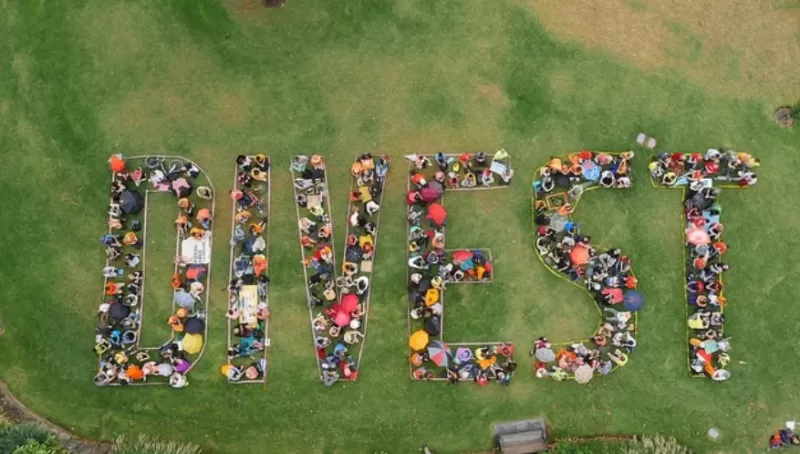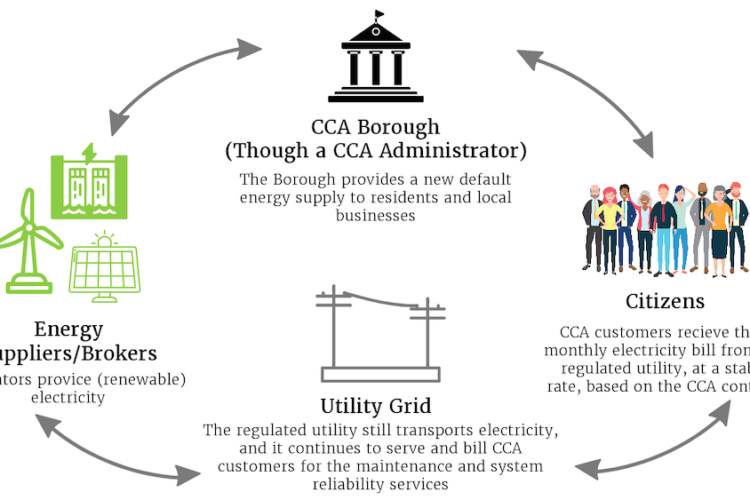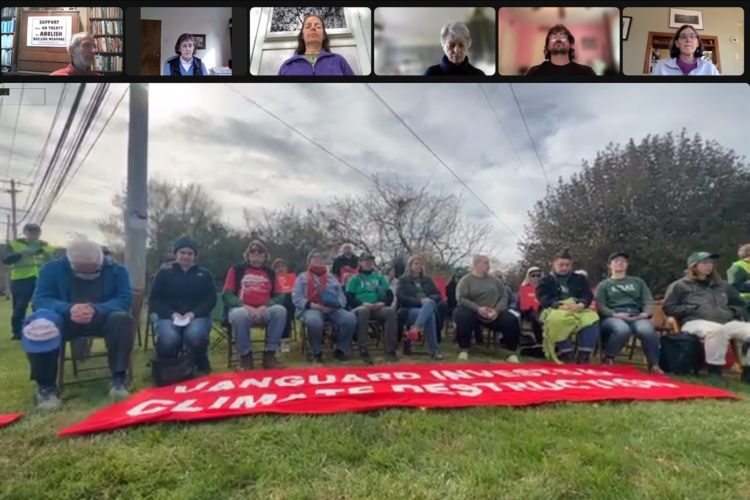Climate and Money: A Guide to Fossil Fuel Divestment & Reinvestment

Created by Friend Jennie Ratcliffe and members of the Earthcare Witness Committee of Durham (NC) Friends Meeting.
This guide provides resources on the what and why of divestment, which banks or funds to divest from, how to go about divesting, and how to reinvest in a more livable whole earth community.
The latest IPCC AR6 report concludes that we are very close to the greenhouse gas levels that will tip us into catastrophic global warming. Around 70-80% of remaining fossil fuels (FF) must remain unburned to try to prevent this, yet the world’s 60 largest banks have invested more than $3.8 trillion in FF companies since 2015. Over $1 trillion has come from the four largest US banks.
An increasing number of individuals and pension funds, banks, academic, healthcare, faith-based and other institutions have now divested from FF extraction, refining, transport and insurance, amounting to an estimated $40+ trillion worldwide. In addition, reinvesting these funds in socially responsible and “green” banks and funds is an important strategy to mitigate the climate crisis and create a more just, regenerative, and ecological economy.
A. What is Divestment from Fossil Fuels and Why Do It?
a) Scientific, economic, and political basis:
- https://gofossilfree.org/divestment/what-is-fossil-fuel-divestment/
- https://sandersinstitute.org/bill-mckibben-discusses-a-decade-long-activist-crusade-to-shame-banks-into-stopping-investment-in-fossil-fuels
b) Spiritual and moral grounds:
- https://quakerearthcare.org/wp-content/uploads/2021/06/divestment_as_lived_faith_2020.pdf
- https://quakerearthcare.org/divestment-faq-dead-links/
- https://www.quaker.org.uk/documents/guide-to-fossil-fuel-divestment-oct-2018: From Britain YM
B. Which Banks/Investment Funds/Companies Should We Divest From?
- https://www.bankingonclimatechaos.org/#score-card-panel: 2021 report ranks banks on FF investments
- https://fossilfreefunds.org : Searchable guide to mutual and related funds that include FF
- https://investyourvalues.org: Searchable guide to mutual and related funds that invest in FF, deforestation, weapons, guns, tobacco, the prison industrial complex and more
CitiGroup, Bank of America, JPMorganChase, Wells Fargo, and Morgan Stanley banks are the biggest US global funders of FF industries. BlackRock and Vanguard are among the biggest asset managers and finance companies and AIG is one of the biggest insurers of FF projects.
C. How Do We Divest from Fossil Fuels?
a) Move your own money – banks, credit cards, and investments (see also D. below)
- https://thisiswhatwedid.org/move-your-money/: Excellent step-by-step guide for changing banks/credit cards that invest in FF, plus sample letters and addresses of big banks (see below)
- https://gofossilfree.org/uk/wp-content/uploads/sites/3/2015/05/Move-Your-Money-Divest-Full-Report.pdf: 350.org campaign including a guide to moving your own money
- https://www.greenamerica.org/responsiblecards: Good guide to credit card alternatives
b) Support campaigns that urge companies/institutions to divest:
[Note: A college or community campaign group is typically more effective than only acting individually. For example, EQAT’s Vanguard campaign and Third Act’s campaigns for older Americans (who hold ~ 70% of US wealth) to divest from “dirty” banks plus public protests. More than 100 major US colleges have divested from FF to date.]
- Community campaigns: https://thirdact.org/our-work/banking-on-our-future/; https://www.eqat.org/ Earth Quaker Action Team’s campaign against Vanguard (one of world’s largest investor in oil, gas and coal); https://gofossilfree.org/about/ and https://350.org/350-campaign-update-divestment/ (350.org’s divestment campaigns); https://stopthemoneypipeline.com/; https://www.sierraclub.org/fossil-free-finance; https://greenfaith.org/divest-invest-now/
- College/academic/institutional campaigns: See https://www.bestcolleges.com/news/list-of-colleges-divested-from-fossil-fuels/ lists US colleges divesting research/endowment funds from FF. See https://gofossilfree.org/samples/ for sample letters to academic Boards, Trustees, or Presidents
c) Support nonviolent direct action (e.g. blocking drilling, oil and gas pipelines; court actions):
e.g., https://www.defendthesacredalaska.org/arctic-refuge; https://stopmvp.org/
D. Where Could We Put Our Money Instead?
[Note: This information is not financial advice. Consult with a financial adviser wherever possible.]
a) Quaker-friendly Funds
- Quakers and others often wish to invest in FF-free funds that also support sustainable investments, e.g., clean energy, social and environmental justice and don’t invest in military, weapons, tobacco etc. (See https://quakerearthcare.org/friends-history-of-investing-with-integrity/)
For Meetings: The Quaker Green Impact Fund of Friends Fiduciary (501 (c)3). Since ~2021, QGIF handles investments for Friends’ Meetings: https://friendsfiduciary.org/our-funds/quaker-green-impact-fund/ (e.g. Philadelphia YM has divested $2 million in FF funds and reinvested them in the QGIF, as have other Meetings)
For Individuals: QGIF does not currently serve individuals, but you can gift money to Friends Fiduciary via e.g., a donor advised fund; they can invest it in the QGIF and other of their funds that are all fossil fuel-free
b) Other funds with socially responsible, sustainable, FF-free options AND no military/weapons, etc.:
- https://fossilfreefunds.org/: Lists FF-free mutual and exchange-traded funds and ranks them. You can combine their rankings with ranks for military free funds at https://weaponfreefunds.org/
Examples of low military/FF-free/“green” funds: [check for specifics]:
Calvert (e.g. https://www.calvert.com/Calvert-Global-Energy-Solutions-Fund-CAEIX.php)
Pax World Growth Funds (https://www.thebalance.com/pax-world-mutual-funds-3025591)
Domini (https://www.domini.com/investing-for-impact )
Green Century (https://www.greencentury.com/)
c) Banks and investment funds with fossil-free and/or environmental, sustainability, social, and governance (ESG) criteria (not necessarily avoiding weapons or military):
[Note: Some funds rely on “net zero” or other investments which may or may not avoid fossil fuel or other ecologically destructive funding; getting full details of specific investment strategies is advisable.]
- Banks: Credit unions, public banks, cooperative/municipal sustainability banks. See e.g., https://mightydeposits.com/posts/environmentally-friendly-banks and https://bank.green/sustainable-eco-banks for FF or eco-sustainable banks
- Funds: consider investment portfolios with clean energy/sustainable options e.g., https://www.greenamerica.org/magazine/guide-socially-responsible-investing-and-better-banking-2021; https://thirdact.org/blog/responsible-finance-an-overview-of-how-to-align-your-money-with-your-values/; https://investyourvalues.org/
- For an initial screen of funds, Morningstar ranks funds’ ESG performance: https://www.morningstar.com/topics/sustainable-investing.
Download the Guide Here:


